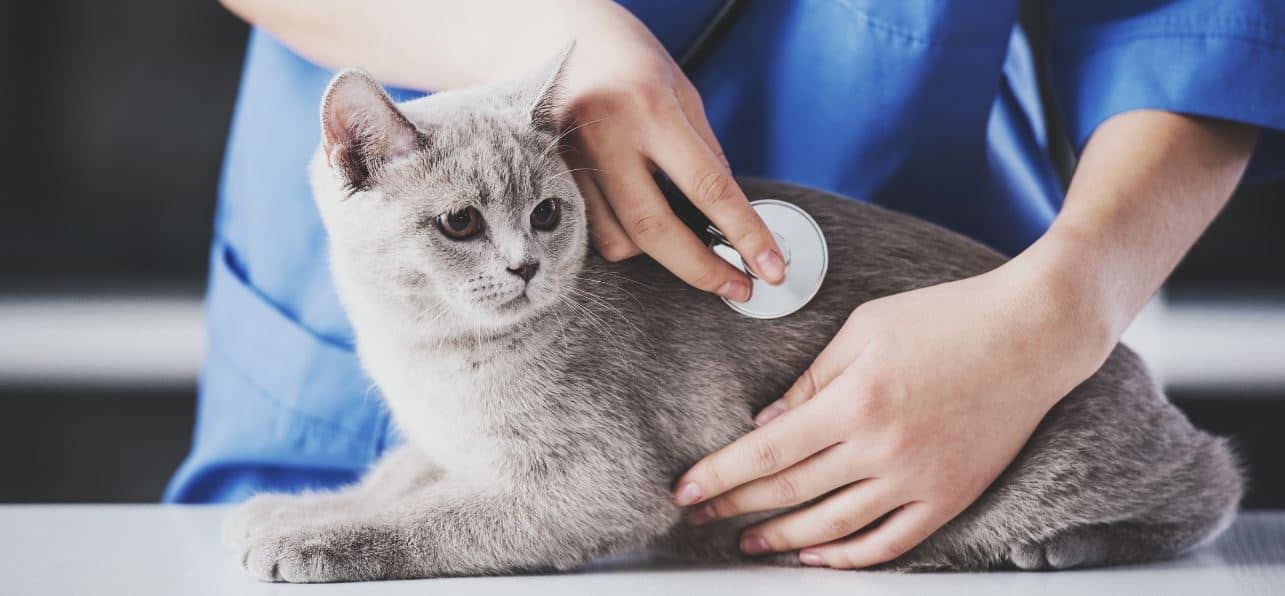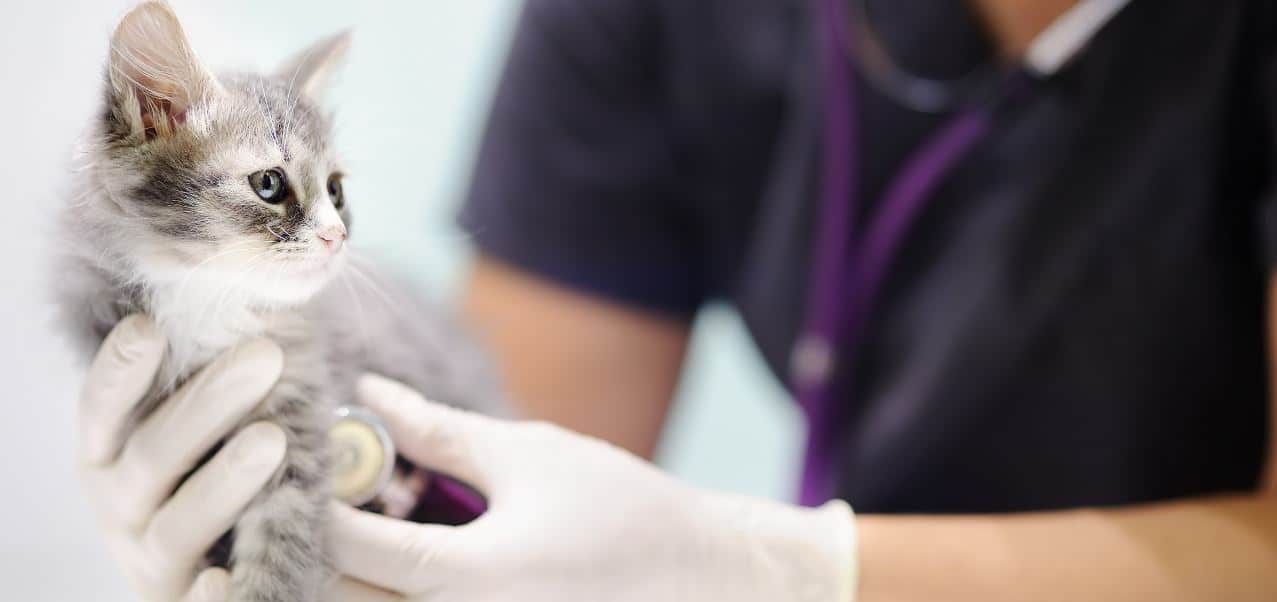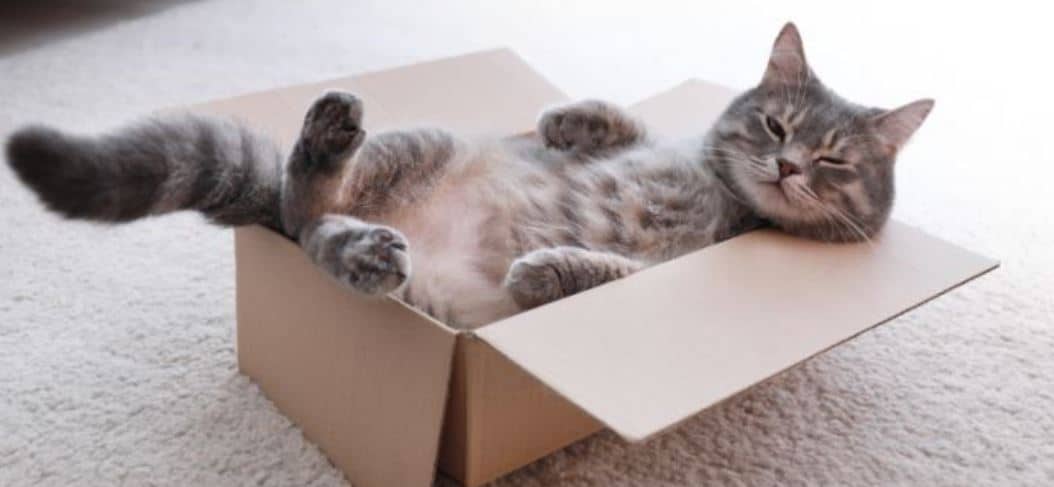Our pets are very precious to us, so much to the point where we would do anything to keep them safe. Most people buy cat insurance to ensure their furbaby’s well-being. Cat insurance can help protect their parent’s wallets if the kitty were to become sick or get in an accident. Unfortunately, cats get sick often and you need to be aware of the signs and symptoms. These common diseases affect all kitties; however, some hit kittens harder than full-grown adult cats. We want to provide you with the information you need to recognize them, as well as treatment options to get your furry friend back to feeling 100%.
8. Upper Respiratory Infection
Starting off our list is a common issue with kitties of all shapes and sizes, upper respiratory infections. These can affect other cats in your house as well, so it’s important to get your cat treated for their own well being and for the well-being of others. Infections of the ears, nose, throat, and sinus area are considered upper respiratory infections (URIs) and can be transmitted through sneezing, coughing, or licking.
Symptoms can include:
- Sneezing
- Congestion
- Cough
- Gagging
- Fever
- Depression
- Open mouth breathing
If your cat is infected, they can become carriers for life and always transmit this infection to other felines. Owners can prevent this by keeping their cat up-to-date with veterinary visits and vaccinations on an annual basis. Since the disease is only transmitted between cats, isolate your cat whenever possible and limit their time outside of the house.
7. Diabetes
Diabetes results from a lack of hormonal insulin and affects cats across the world. Just like us humans, cat diabetes can be classified into two types, Type I and Type II. Type I signifies a lack of insulin production while Type II suggests impaired insulin production and inability to create hormones.
We would like to stress this disease is controllable and many cats can live long healthy lives under diabetes, similar to humans. It’s not as crippling as some of the diseases higher on the list, but because of its commonality, we had to include it.
Diabetes cat symptoms include:
- Excessive water consumption
- Dehydration
- Increased urination
- Urinary tract infection
- Lethargic behavior
6. Cancer
Next on our list is cancer for cats. While it’s more common in dogs, we still see cancer frequently show up in cats. Despite being more rare with kitties, when it does happen, the results are far more drastic than dogs with cancer.
Similar to humans, cancer in kitty cats can be centralized to one specific area of the body. Tumors can arise and spread throughout the body where cells can grow rapidly and invade parts of the cat body. Hereditary and environmental factors are often the two main causes of cancer in cats.
Symptoms in cats can include:
- Lumps
- Swelling
- Bad breath
- Weight loss
- Loss of appetite
- Diarrhea
- Vomiting
5. Chronic Kidney Disease (CKD)
Chronic Kidney Disease (CKD), is one of the most common diseases for cats. It mainly affects older, full-grown felines but it’s not uncommon to see renal failure in kittens as well. When chronic kidney failure occurs, it’s important to get a proper diagnosis early so you can make sure your cat is comfortable.
Other than old age, kidney failure can be the result of your cat eating something poisonous. It’s crucial to ensure all items that are potentially poisonous are not within reach of the kitty. If you notice your cat is losing their sight or has a decreased appetite with weight loss, they might have chronic kidney disease. Other cat kidney disease symptoms are below:
- Bad breath
- Brown tongue
- Dry coat of fur
- Constipation
- Vomiting or diarrhea
- Frequent urination
- Increased thirst
As always, if you see any of these symptoms, call your vet immediately. More tests and blood work will be necessary to treat your furbaby.
4. Rabies
We all know that rabies isn’t exclusive to just cats, all animals can contract rabies. As a viral infection, it preys on the brain and spinal cords when your pet is bitten by an infected animal. The main symptoms include: involuntary muscle movement, foaming at the mouth, and aggressiveness.
Unfortunately, if your cat is infected with rabies, the fatality rate is nearly 100% once symptoms start to show.
However, there are a few ways you can help prevent your cat from getting rabies. The only way to catch rabies is for another infected animal to bite your cat, which means this cat disease is very contagious.
By minimizing the time your cat spends outside or by not letting your cat out at night, you can decrease the risk of your beloved kitty getting bitten. If your cat does have to go outside, closely monitor them until they are safely back inside.
3. Feline Immunodeficiency Virus (FIV)
Mainly affecting the cat’s immune system, Feline Immunodeficiency Virus (FIV) is a slow-moving disease that may take a while to show symptoms. FIV severely weakens the immune system and makes cats susceptible to other infections.
FIV symptoms include:
- Fever
- Weight loss
- Fur loss
- Eye infections
- Enlarged lymph nodes
There are only two ways to contract the virus, with one being more prevalent than the other. Similar to rabies, the main way to contract FIV is through a bite from another infected animal, mainly another cat. The disease can also be passed down hereditarily, but those chances are very slim.
Unfortunately, there is no cure for FIV, but there are multiple medications that can extend your cat’s life for years before the disease reaches the chronic stages. Many cats with FIV are living long, healthy lives as long as they’re kept indoors.
2. Feline Panleukopenia (FPLV)
This disease ranks high on our list because of the severity and contagiousness of the disease. Feline Panleukopenia (FPLV) is a cat disease that targets the immune and nervous system. Compared to other feline diseases, it can affect both wild and domesticated cats. FPLV is the most common cause of death for felines kept in unsanitary conditions, such as the wild or unclean homes.
The disease gets its name from “Panleukopenia”, which means a decrease in the number of white blood cells. FPLV attacks the white blood cells, causing heart issues that may be the death of your kitty. Also known as the cat plague, the virus is extremely contagious and can cause paralysis in some cats.
Symptoms can include:
- Anorexia
- Lethargy
- Bloody diarrhea
- Biting of the tail or legs
- Loose, elastic-like skin
While there is no cure for FPLV, veterinarians recommend vaccinating your cat as soon as possible to avoid further complications with this cat heart disease. Medications and treatments will not cure the disease; however, you can risk contraction.
1. Feline Leukemia Virus (FeLV)
Sitting at the top of the charts is the Feline Leukemia Virus (FeLV), which is the most common cause of death and disease in all domestic cats. Similar to the other diseases discussed previously, FeLV preys on cats immune systems and can cause many secondary illnesses when it is weakened.
This condition is only transmitted between cats and it can be through saliva, blood, feces, or urine. Symptoms for FeLV may not manifest for a while, which is why we stress the importance of getting your cat checked by your local vet before welcoming them into your home.
FeLV Symptoms:
- Bloody gums
- Rapid weight change
- Tumors
- Lethargy
The only way to effectively diagnose FeLV is for a veterinarian to run blood tests on your furbaby. It sounds painful, but it’s the only sure-fire way to test for the virus.
Prevention is important for all feline diseases and this one is no different than the others discussed. Be proactive by vaccinating your kitty in order to protect them from FeLV. Vaccinations can start to add up. Thankfully, Prudent Pet reimburses policyholders for the FeLV vaccine up to 90% so you won’t even have to pay a quarter of the cost. The FeLV vaccine decreases the risks of contraction and will help your kitten if they do come into contact with the virus.
The prevention of diseases is exactly what Prudent Pet protects. As a pet insurance company for pet parents by pet parents, we understand the care and love everyone has for their pets.
Get a quote today with Prudent Pet and get reimbursed for costly vaccinations to protect your kitty against harmful viruses. We cover all necessary vaccines with our Accident+Illness plan along with our Preventive Care.







